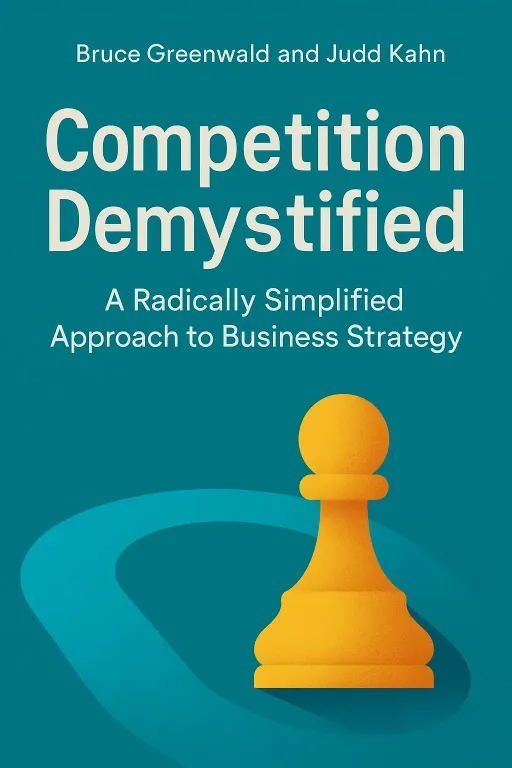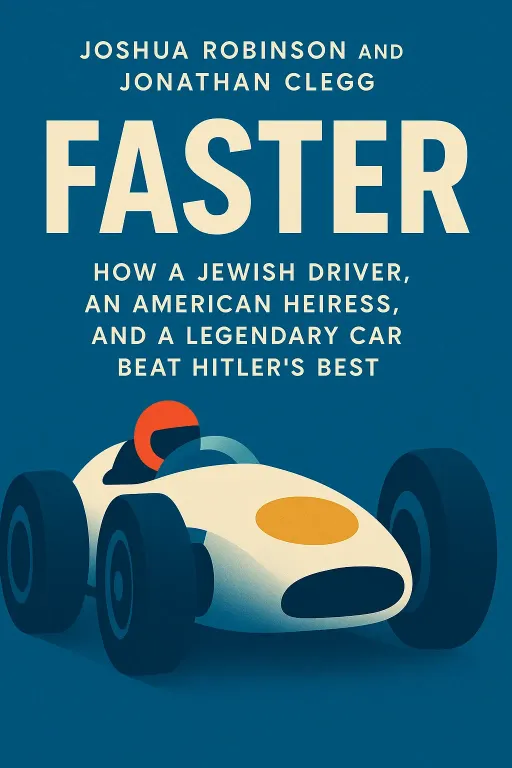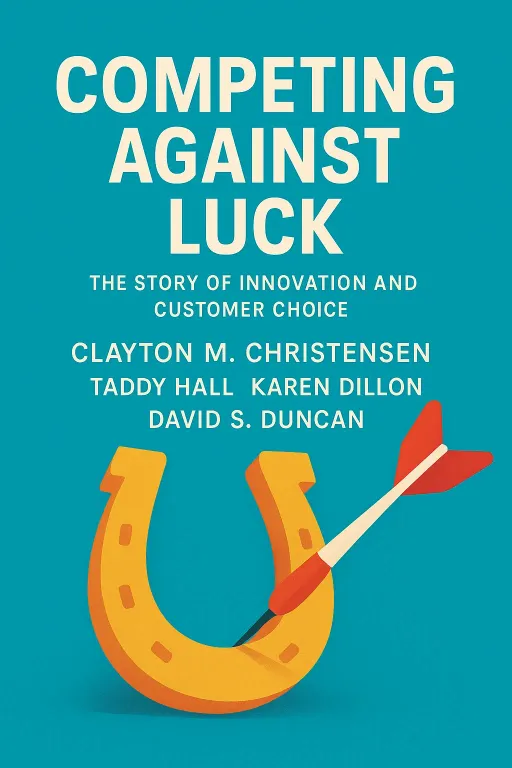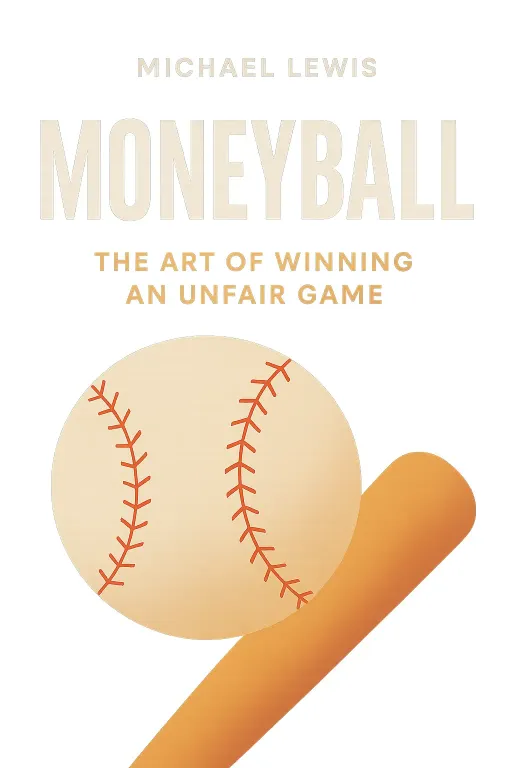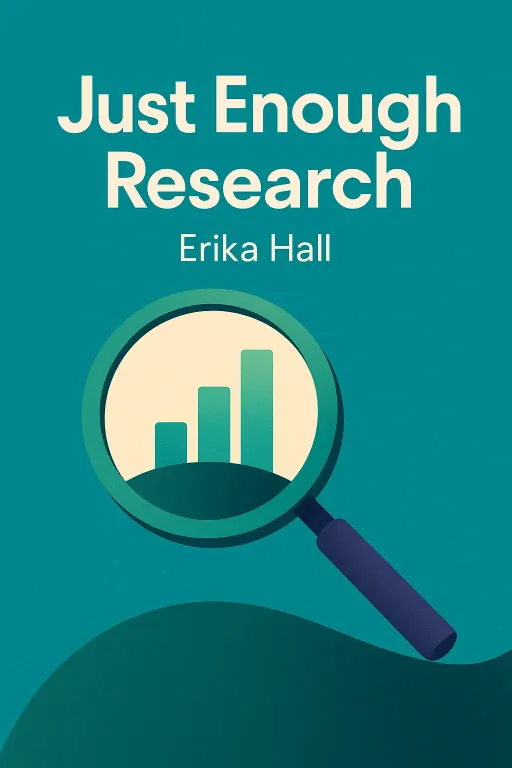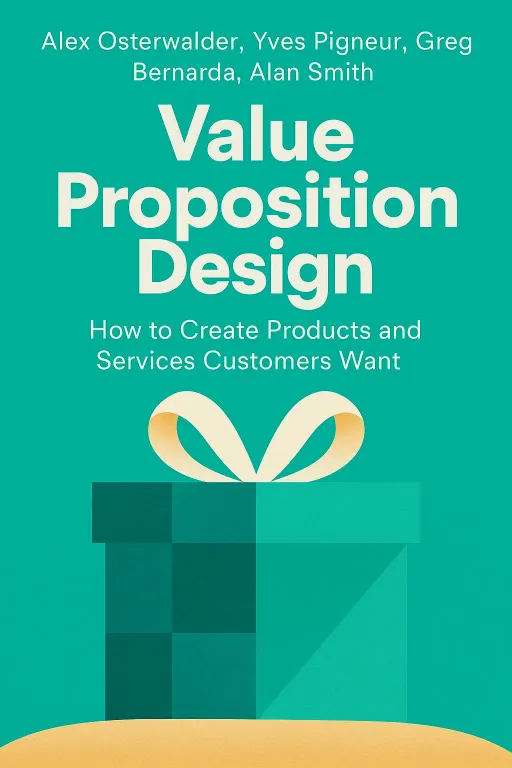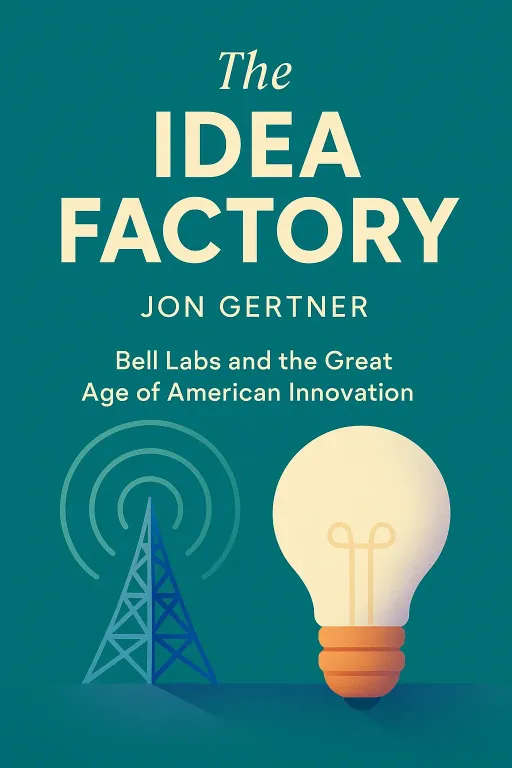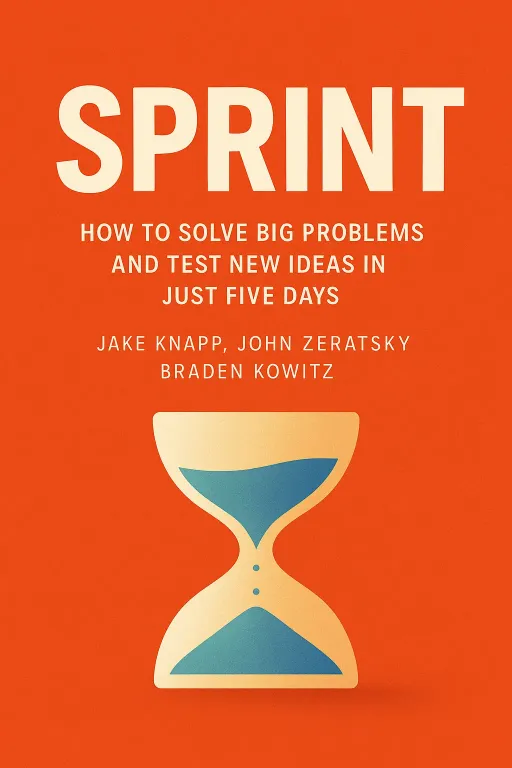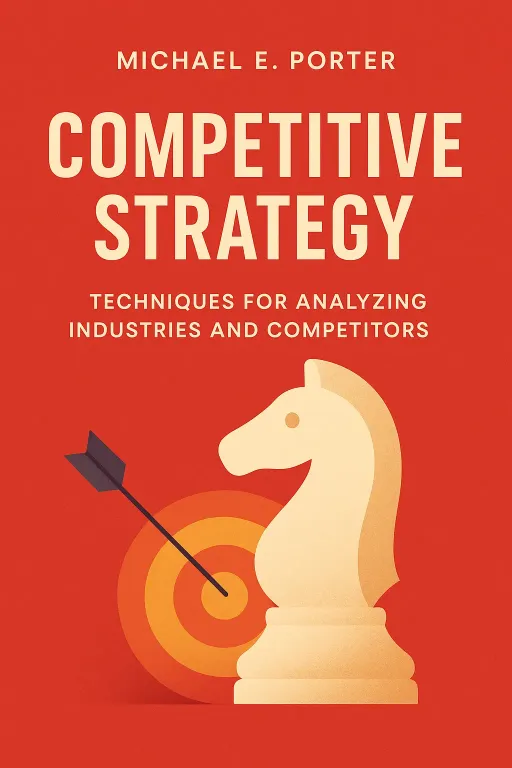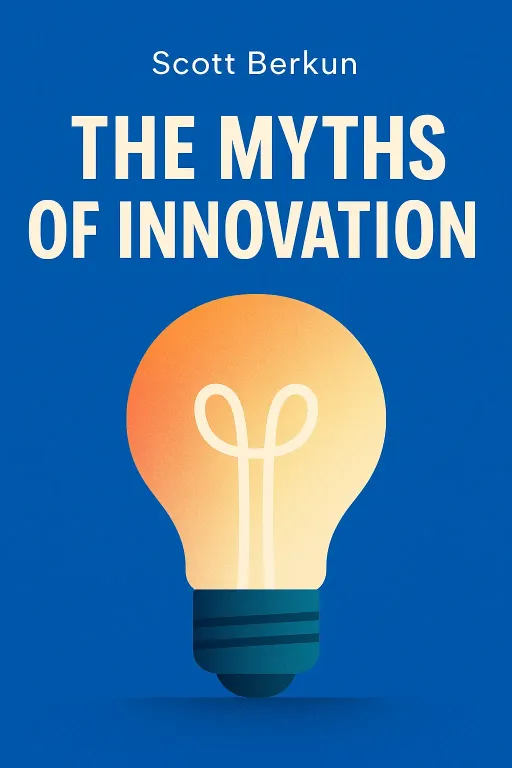
The Apple, The Bath, & The Lie
13 minGolden Hook & Introduction
SECTION
Joe: Everything you know about that 'Eureka!' moment—Archimedes in the bathtub, Newton under the apple tree—is basically a comforting lie. The real story of innovation is much messier, and frankly, a lot more work. Lewis: Hold on. Are you telling me my entire middle school science education was a fraud? I’ve been dining out on that apple story for years. It’s the perfect anecdote for sounding smart without actually knowing anything about physics. Joe: Well, the story is a great story, but it’s not the true story. And that's the central premise of the book we're diving into today: The Myths of Innovation by Scott Berkun. Lewis: Right, and Berkun is the perfect person to write this. He wasn't some academic in an ivory tower; he was a manager at Microsoft during the chaotic, early days of Internet Explorer. He saw the messy, political, and frustrating reality of building something new from the inside. Joe: Exactly. He wrote this book to cut through all the romantic hype and give people a practical guide. And it starts by dismantling our favorite myth of all, the one we all secretly hope is true. Lewis: The one where a brilliant idea just falls out of the sky and lands perfectly in your lap? Joe: Precisely. The myth of the epiphany.
The Myth of Epiphany: Innovation as Hard, Cumulative Work
SECTION
Joe: Let's start with the big one you mentioned: Isaac Newton and the apple. The popular version is that he’s dozing under a tree, an apple bonks him on the head, and boom—the theory of gravity is born. It’s clean, it’s simple, it’s magical. Lewis: And it’s wrong, I take it? Joe: Completely. The story was likely an exaggeration Newton himself told late in life. The reality is that he spent nearly twenty years working on the mathematics and observations to explain gravity. He was obsessed with the movement of the planets, the nature of light, and the laws of motion. The apple, if it happened at all, was just one tiny observation among thousands. It was a single drop in an ocean of work. Lewis: So the 'Eureka!' moment is just the final puzzle piece, but we conveniently ignore the 999 other pieces he painstakingly carved out by hand beforehand? It’s less like a lightning strike and more like building a giant Lego castle, one tiny, boring brick at a time, and the 'epiphany' is just putting the final flag on top. Joe: That's a perfect analogy. And it’s the same with Archimedes. We all know the story: he gets into the bath, the water level rises, and he runs naked through the streets shouting "Eureka!" because he’s figured out how to measure volume. Lewis: A story that has inspired countless scientists to… take more baths, I assume. Joe: Probably. But again, we’re only remembering the climax. The book highlights what the story leaves out: the immense pressure Archimedes was under. The king had given him a high-stakes problem—to figure out if his new crown was pure gold without damaging it. Archimedes had likely spent weeks, maybe months, agonizing over it, trying and failing. The bath wasn't a moment of random inspiration; it was probably a moment of stress relief. His mind was so saturated with the problem that a simple, everyday observation finally connected the dots. Lewis: Huh. So the real story is the weeks of stress and failure leading up to it. We love the triumphant ending but we edit out the grueling, frustrating process. Joe: We do, because the process isn't a good story. It's not glamorous. Gordon Gould, one of the primary inventors of the laser, said it best. He described how the whole concept for the laser "suddenly popped into his head" one Saturday night. But then he added the crucial part: "…but that flash of insight required the 20 years of work I had done in physics and optics to put all of the bricks of that invention in there." Lewis: Wow. Twenty years for one flash. Okay, but isn't there some magic to it? Don't some people just have that spark? That ability to connect dots that others can't? Joe: The spark is real, but it’s not magic. Berkun argues it’s about having a prepared mind. It's about immersing yourself so deeply in a subject that your brain starts making connections subconsciously. The "epiphany" feels sudden to you, but it’s the result of all that prior loading. It’s a pattern finally emerging from the noise. The problem is, we focus on the flash, not the twenty years of work, and it creates a terrible model for anyone who actually wants to innovate. Lewis: Because it encourages us to wait for our own apple to fall, instead of getting to work building the orchard. Joe: Exactly. You could wait your whole life.
The Social Gauntlet: Why People Resist New Ideas
SECTION
Lewis: That makes sense. But it feels like the hard work is only half the battle. Berkun argues that even if you have a brilliant, world-changing idea, people will probably hate it at first. Why is that? It seems so counterintuitive. Joe: This is maybe the most important and subtle point in the book. Berkun has this fantastic line: "Innovative ideas are rarely rejected on their merits; they're rejected because of how they make people feel." Lewis: Oh, I like that. It’s not about logic; it’s about emotion. Joe: It’s almost entirely about emotion. A new idea, by definition, threatens the status quo. It creates uncertainty. It might make someone's job obsolete, or challenge a belief they've held their entire life. And that feels threatening. The classic example is the "innovator's dilemma." Lewis: I've heard that term. What does it actually mean? Joe: Let's paint a picture. It’s 1876. You are the president of Western Union. You are a titan of industry. You’ve built a communications empire on the telegraph—a massive, profitable network of wires, stations, and trained operators. Your stock is soaring. You are the king of communication. Lewis: I'm feeling pretty good about myself. I probably have a fantastic mustache. Joe: A truly glorious one. Then, a young, wild-eyed inventor named Alexander Graham Bell comes into your office. He shows you a strange little contraption he calls a "telephone." He claims people will be able to talk to each other over your wires. He offers to sell you the patent for a hundred thousand dollars. What do you do? Lewis: I mean, with hindsight, I mortgage my glorious-mustache-grooming-kit and buy it instantly. But if I'm actually that CEO… I probably laugh him out of the room. Joe: And that's what happened. The president of Western Union reportedly dismissed the telephone as an "electrical toy." Now, was he an idiot? No. He was a brilliant businessman. From his perspective, the telegraph was a proven, efficient system for sending important messages. The telephone had terrible audio quality, no infrastructure, and who would want to hear a voice when you could get a clear, written message? It seemed impractical, a novelty. Lewis: Wow. So you're the CEO of Western Union, and you're not being stupid, you're being… a good manager, protecting your existing, profitable business. And that's precisely why you fail. That's the dilemma. Joe: That is the dilemma in a nutshell. Your success blinds you to the next wave of innovation because the new thing looks weak and silly compared to your strong, established creation. It’s not a failure of intelligence; it’s a failure of imagination, driven by the fear of losing what you have. Lewis: That's actually kind of heartbreaking. You have this world-changing idea, and the biggest obstacle isn't physics or engineering, it's people's feelings and their attachment to the old way. Joe: It’s the same pattern over and over. Think of Galileo. The book brings up his story, and frames it perfectly. The Church didn't persecute him because they had better astronomical data. They persecuted him because his idea—that the Earth was not the center of the universe—was profoundly unsettling. It challenged their entire worldview, their sense of order, and their authority. The idea made them feel small and uncertain. So they rejected it, violently. Lewis: Okay, so if you're that innovator, the person with the new idea, what do you do? How do you fight that emotional resistance? Joe: Berkun’s advice is to stop treating it like a technical problem and start treating it like a human one. You have to build empathy. You have to understand the fears of the people you're trying to convince. You have to frame your idea not as a threat, but as an evolution. It’s about persuasion, storytelling, and politics as much as it is about the quality of the idea itself.
The Myth of the Best Idea Winning: The Unseen Forces of Adoption
SECTION
Joe: And this deep-seated resistance leads to the most frustrating myth of all: the belief that the best idea will automatically win. Lewis: Right, the idea of the meritocracy. That in the marketplace of ideas, the best one will naturally rise to the top. It’s a nice thought. Joe: It’s a lovely thought, and it’s almost never true. An idea's success is often determined by secondary factors that have nothing to do with its inherent "goodness." Things like timing, luck, marketing, and cultural inertia. Lewis: Can you give an example? Because that sounds a bit like an excuse for a good idea that just failed to find an audience. Joe: I'll give you the most painful, high-stakes example imaginable. Let's go to September 23, 1999. NASA's Mars Climate Orbiter, a $300 million piece of cutting-edge technology, is approaching Mars after a journey of millions of miles. It fires its engines to slow down and enter a stable orbit. Lewis: Okay, I'm on the edge of my seat. This is the culmination of years of work from hundreds of brilliant scientists. Joe: The spacecraft disappears behind the planet, just as planned. Mission control waits for it to re-emerge on the other side. And they wait. And they wait. Silence. The signal never comes back. The orbiter is gone. Lewis: Oh man. What happened? A meteor? Engine failure? Joe: Worse. Much, much worse. After a frantic investigation, they discovered the cause. One engineering team at Lockheed Martin had used English units—pounds and feet—in their calculations. The NASA team at the Jet Propulsion Laboratory, which was operating the spacecraft, was using the metric system—newtons and meters. Lewis: You're kidding me. A middle school math conversion error destroyed a Mars mission? That's insane. Joe: A simple, preventable unit-conversion error sent the $300 million spacecraft on a trajectory that was far too low. It didn't orbit Mars; it burned up in its atmosphere. The idea—the technology, the science—was brilliant. But a tiny, secondary factor, a communication breakdown over something as basic as units of measurement, doomed the entire project. Lewis: That is a perfect, and horrifying, example. Okay, but that's a one-off disaster. In the marketplace, doesn't quality eventually rise to the top? Joe: Not necessarily. Berkun talks about the "goodness/adoption paradox." And the best example is the metric system itself. It is, by almost any objective measure, a superior system. It’s based on tens, it’s logical, it’s standardized. It’s so good that 190 of the 193 nations on Earth use it. Lewis: And the holdouts are… let me guess. The United States, Liberia, and Myanmar. Joe: You got it. The U.S. has been debating and resisting the metric system for over 200 years. Thomas Jefferson was a huge proponent. But it never fully caught on. Why? Not because inches and pounds are better. They’re not. It’s because of cultural inertia. The cost and hassle of changing every road sign, every textbook, every wrench, and retraining an entire population was just too high. The "good enough" existing system beat the "better" new one. Lewis: So the best idea doesn't win. The idea that's most compatible with the existing culture, or has the best timing, or just gets lucky, often wins instead. Joe: Exactly. Innovation isn't a clean race where the fastest runner wins. It's a messy, chaotic scramble where all sorts of external factors can trip you up right before the finish line.
Synthesis & Takeaways
SECTION
Lewis: So if innovation isn't a flash of genius, people instinctively resist it, and the best idea doesn't always win... what's the big takeaway here? It sounds a bit hopeless. Joe: It's not hopeless; it's just human. I think that’s Berkun's core message. We need to stop waiting for magic and start managing the messy, human process of creating change. He’s arguing that innovation isn't an engineering problem; it's a social and psychological one. It requires empathy, persuasion, and incredible persistence, not just a brilliant mind in a lab. Lewis: It’s about understanding the people you’re trying to serve and the culture you’re trying to change, maybe even more than understanding the technology you’re building. Joe: Precisely. The myths we tell ourselves—about the apple, the bathtub, the lone genius—they’re comforting because they remove the human messiness. They make it seem easy and destined. But the reality is that every great innovation we take for granted today was, at one point, a fragile, unloved idea that had to be fought for, defended, and patiently nurtured through a world that was mostly hostile to it. Lewis: That’s a much more empowering way to look at it. It means anyone can do it, if they’re willing to do the work and navigate the social maze. Joe: It’s a call to action, not a fairy tale. So maybe the best way to close is with a reflective question for our listeners, inspired by the book. Lewis: I like it. Joe: The next time you hear a new, disruptive idea—at work, in the news, anywhere—ask yourself: is your first reaction based on its merits, or on how it makes you feel? Lewis: That’s a great question. We'd love to hear your thoughts. What's an innovation you resisted at first but love now? Let us know. We’re always curious. Joe: This is Aibrary, signing off.
